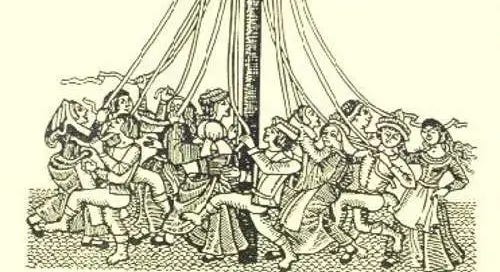Holidays and Feast Days in RPGs
Weaving historical and religious celebrations into the fabric of your RPG
If fantasy RPGs are set in pseudo-medieval worlds, then certain things must be present to complete the simulation. One of those things is the concept of holidays and feast days. These days were not just important to medieval society, but were sacred in many cases. There are commonalities in celebrations across multiple societies and your society is no different. In RPGs, celebrations mark the passage of time and further support the idea of your world being alive. Today we're going to discuss how to utilize holidays in your RPG world and what exactly you can do with them.
There are five times a year where celebrations should automatically be placed in your world; the summer solstice, the autumnal equinox, the end of harvest, the winter solstice and the vernal equinox. Every society had some kind of event to mark these times of year, so there are five freebies for you. Those shouldn't be your only holidays though. The word “holiday” comes from “holy day,” so the dominant religion of your world will have a handful of feast days too. On top of that, births and weddings, especially of the ruling class, will call for periods of celebration. With that in mind, a time of celebration should be happening somewhere in the world every couple months or so. When the party is traveling, it might be helpful to roll a percentile dice to determine whether or not a celebration is going on. Otherwise, go by the real-world calendar as it's the easiest way to track time.
As for what purpose these feast days serve in your game, look no further than history to see what kinds of things happen during large celebratory gatherings. Holidays and celebrations provide large audiences for demonstrations of terror. Their public nature means that otherwise inaccessible people will not only be visible, but prominent. The constant comings and goings of goods and people provide cover for all sorts of clandestine activities. In gaming, one of the best examples of this can be found in Assassin’s Creed II where, as Ezio Auditore, the player completes a serious of missions prior to and during Carinvale in 15th century Venice. The festive environment presents its own unique challenges for the player, including restricted areas that require a special mask and heightened guard presence, but also unique advantages including fireworks that cover the sounds of gunfire. In RPG play, you have similar opportunities to impose new restrictions and grant new paths of progression based on the altered circumstances. Other factions will have similar opportunities though, so while your party may take advantage of the chaos to steel from the Thieves’ Guild, someone else may be trying to assassinate the party’s Baron patron.
Holidays and celebrations serve a dual purpose of helping your world feel real through the passage of time and also providing unique circumstances that your players must overcome or work within to accomplish their goals. I encourage everyone to add them to their current or future games. For those of you who play in or follow my campaigns, this is definitely foreshadowing for things to come.




